COVID-19 Stories of Change: Green String Network, Kenya
Sep 03, 2020
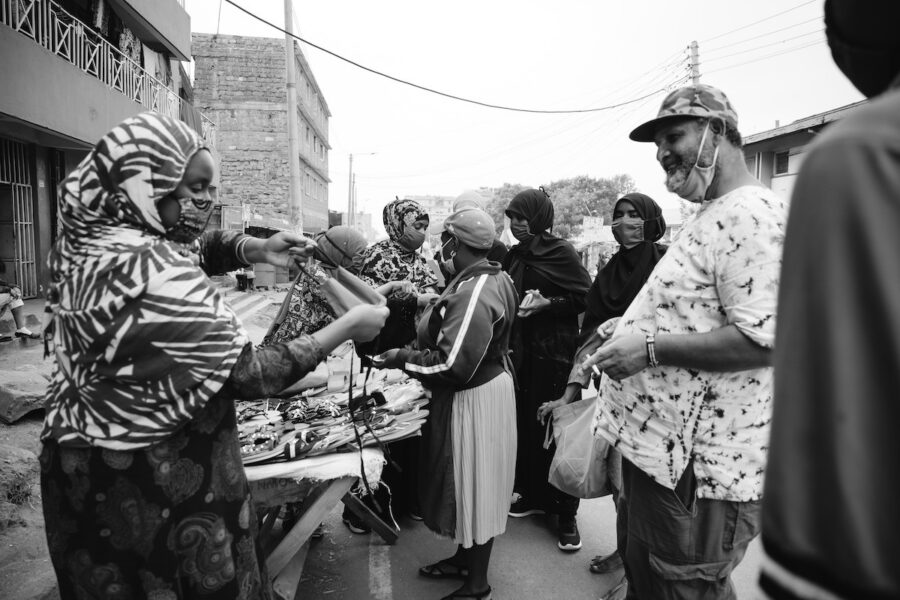
These are testing times for the mental health projects we are working with. Each has had to think quickly, adapt & overcome challenges due to COVID-19. Each has had a unique journey, which we're going to share them through our COVID-19 Stories of Change series.
The work of Kenya-based Green String Network (GSN) focuses on providing opportunities for communities and individuals in Somalia, Kenya, Ethiopia, and South Sudan to heal from trauma and collectively work towards breaking cycles of violence through creative therapies and leadership encounters.
What were the greatest challenges?
For GSN, COVID-19 meant that some of their face-to-face activities, such as peer support groups and workshops, have had to be stopped and adapted to the online space. With this have come challenges around individuals being comfortable with receiving support online and ensuring that the same unique connection and relationship that is reached in person, can be recreated via a screen. Certain funding has also been put on pause, due to funders considering that objectives can no longer be met. Moreover, with increased community transmission and the rise in police brutality used to enforce public health measures, the situation in Kenya is becoming increasingly difficult and personal for the team, who have sadly experienced the loss of friends and family, as well as having had a positive case within the office. The pandemic has imposed situations of collective trauma on the vulnerable communities, forcing organisations like GSN to rapidly rethink their programming strategies.
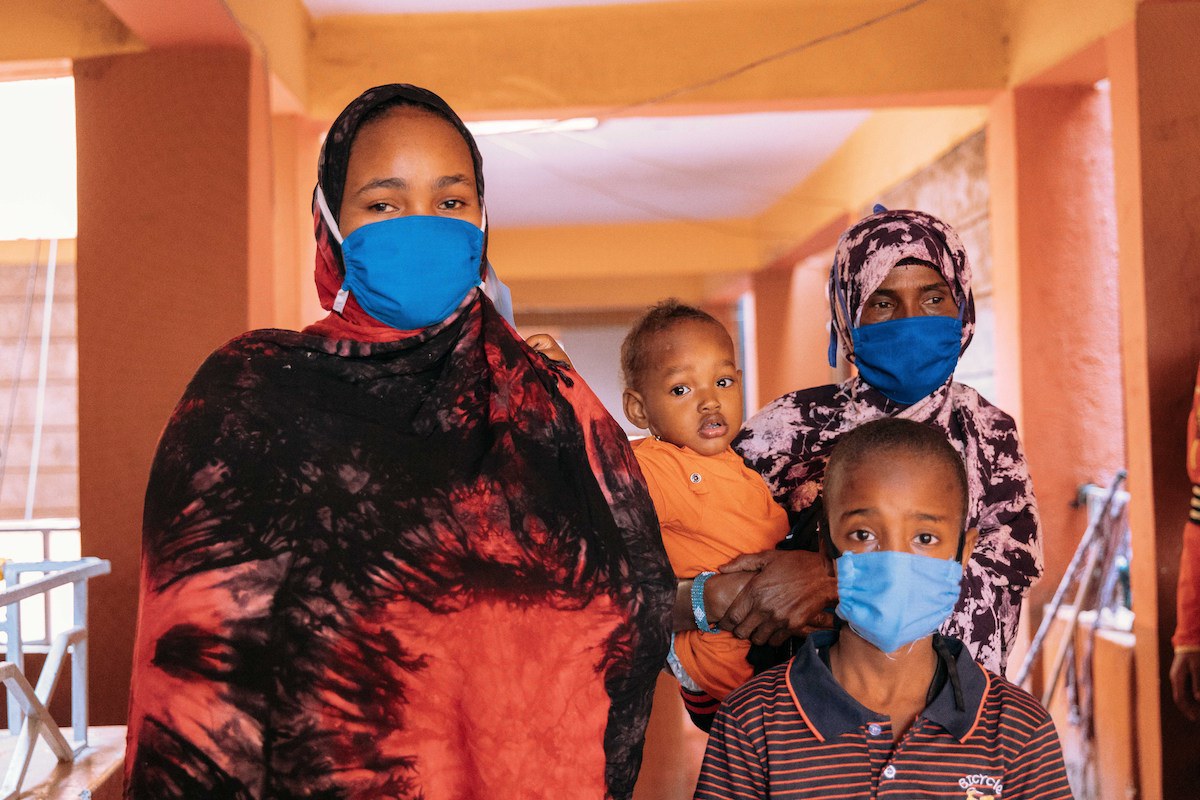
Lockdowns, curfews, quarantines and physical distancing measures have exacerbated social fragmentations and hampered access to basic health services for the majority of the poor, thus increasing their risks of infection. What’s more, contextualising WHO protocols for protecting populations from COVID-19 infections has been a public health challenge for many in Kenya. The securitised responses by state agencies in dealing with suspected positive cases has further polarised and criminalised society and precipitated stigma for many.
How have they adapted?
Despite these difficulties, the team has come together to share ideas on how to adapt their programme and build on their strengths. Early on in the pandemic, the team realised that COVID-19 information being delivered by the government and public health organisations was not being tailored to the Kenyan context nor to minority groups, and was not reaching the most marginalised communities. In response to this, GSN began developing artwork that was contextually appropriate for the Kenyan setting and its communities, promoting life-saving messages through artistic illustrations that have been printed as posters and stickers and disseminated through social media. For example, the team has been producing artwork on how to wear a mask specifically tailored to Muslim communities, which takes into account beards and headwear.
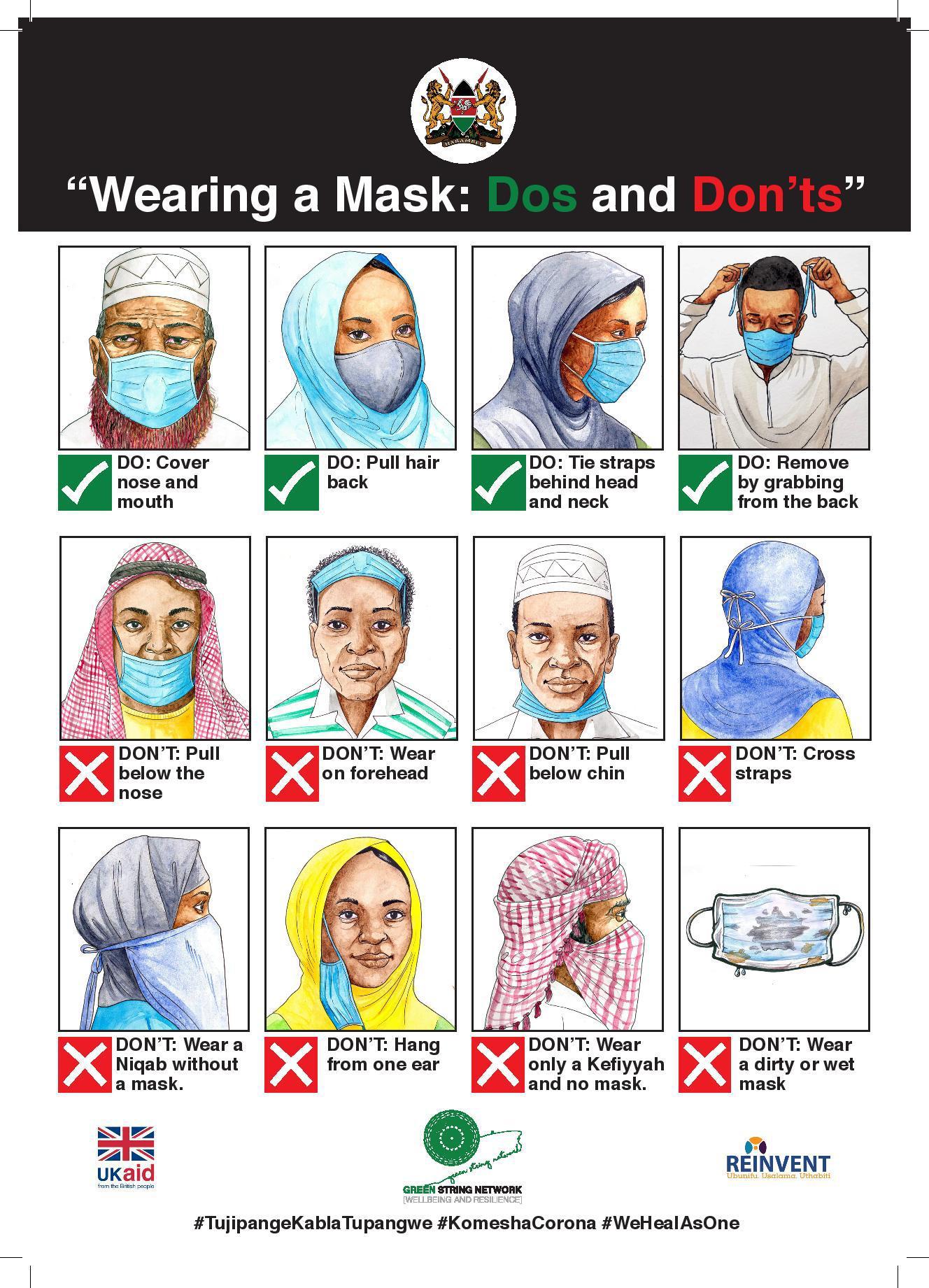
GSN has also produced a series of three healing-centred yoga pieces on their youtube channel, focused on helping release the current collective distress felt by many. Further, the team has put in place certain measures to ensure that their new working arrangement maximises their own safety, such as the wearing of masks, hand sanitisation and a move to a fully online signature.
GSN also realised early on that COVID-19 is threatening community livelihoods and health safety nets. GSN found that for many vulnerable people in Kenya, especially in informal settlements, buying disposable masks was not sustainable. GSN therefore created the Family Cloth Mask Initiative (FCMI), employing local tailors to make reusable masks and distributing these to families in informal settlements, with information on how to wear and clean them. This provided a critical source of income for the tailors – mostly women – and their families, who had suffered due to widespread job losses.
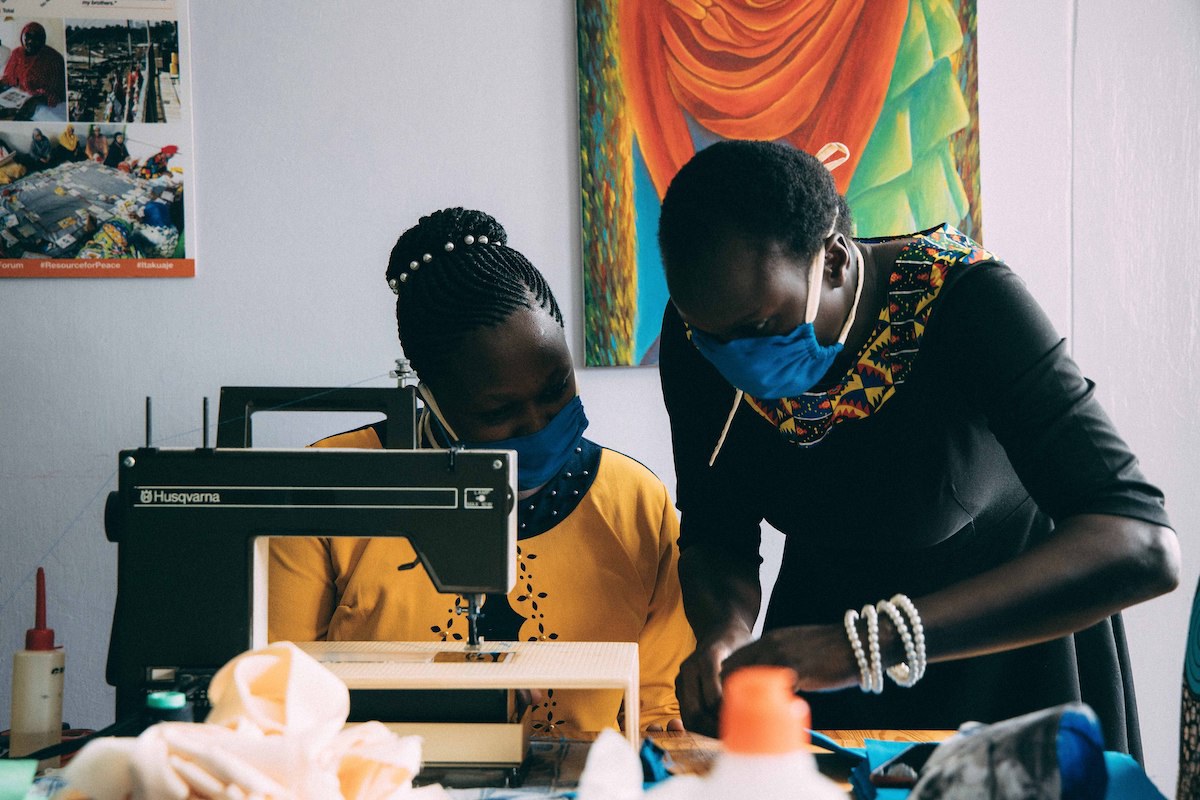
What were the enablers?
The image and story-based approach to GSN’s activities, as well as their established network of illustrators and artists, has allowed the transition to the online space to be reasonably quick and easy. The materials created by GSN on COVID-19 are hosted at opensource sites and can be downloaded as posters or social media images. All these materials are available in all key local languages spoken throughout Kenya. Furthermore, the team have a wide network of relationships to draw upon to ensure the success of their projects, from community leaders to police officers, journalists to Ministry of Health officials.
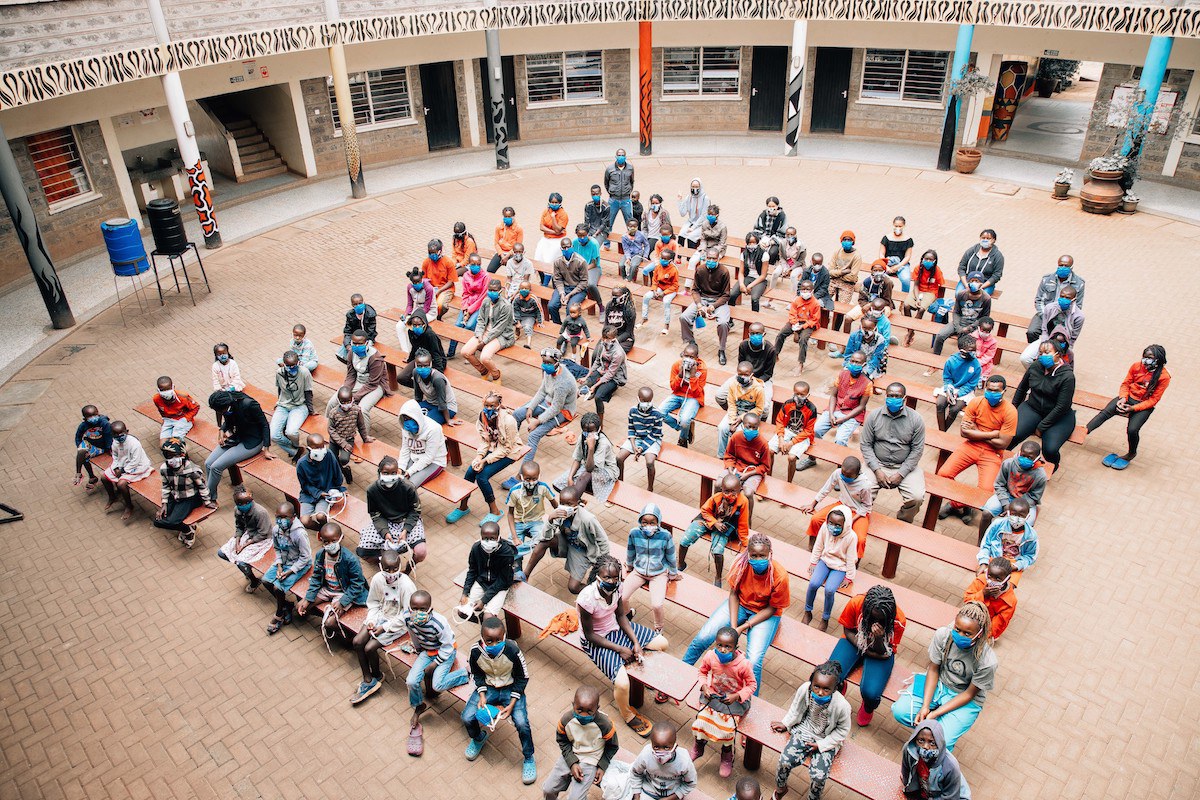
The organisation’s practical approach and holistic conception of mental health have been big assets during this time, as has its adaptive nature: thinking outside the box has always been central to GSN’s ethos. The coronavirus has only reinforced the purpose of their work by further revealing the cracks in the current system and has brought the opportunity of reaching a wider audience via online platforms. If their online support programming works, the team is hopeful they can reach a larger number of people in the future. GSN’s response to the COVID-19 pandemic reflects its strong belief in community wellbeing, resilience and mitigating psychological impacts of COVID-19 on peace.
Finally, the team mentioned that Ember’s support has been greatly appreciated during this time, including the team building sessions conducted together, receiving funds which have contributed towards the development of online activities, and being connected with other organizations working in similar contexts and experiencing comparable challenges.